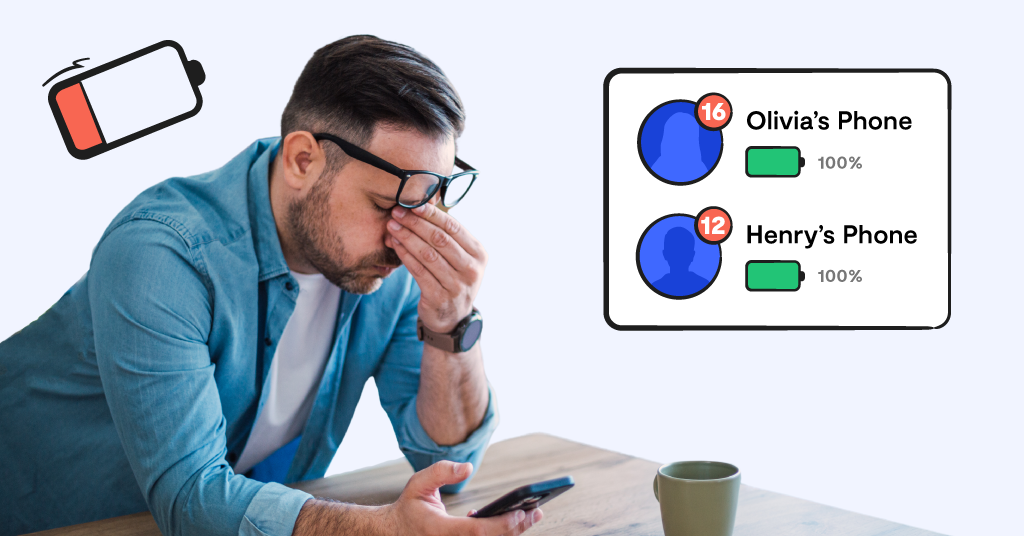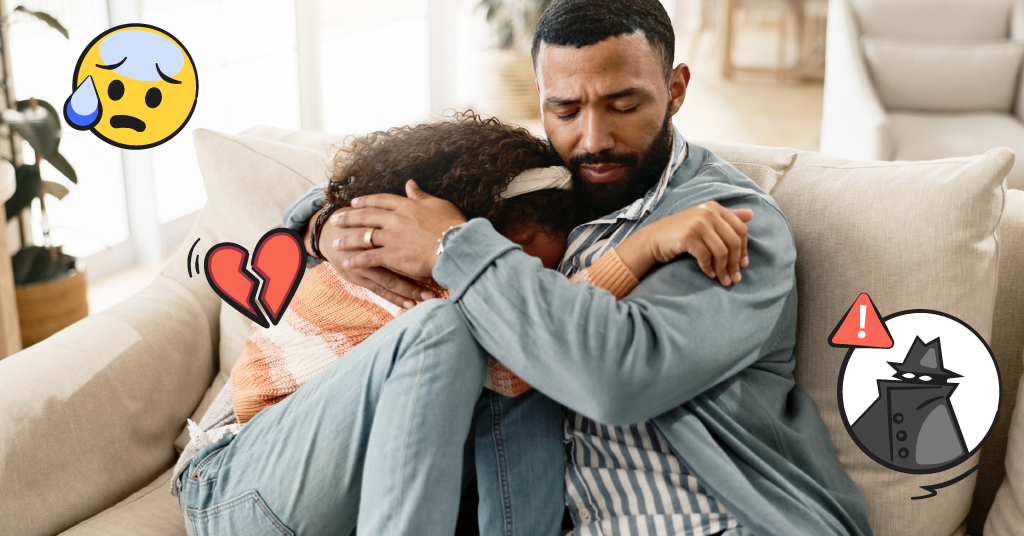**This blog post was updated on January 19, 2023.**
As a parent or guardian, you hope your child never has to worry about the big stuff in life. A little fear of crossing a busy street? Sure. A healthy caution towards strangers online? Definitely. But seeing your kid wrestle with bigger fears can be tough. There are always things happening in the world that can cause teenage anxiety — maybe one of their favorite celebrities passes away, they’re worried about climate change, or they’ve heard talk of a potential war with North Korea.
To learn more about anxiety in teens, Bark spoke with Dr. Paula A. Freedman, a Licensed Clinical Psychologist and Director of Training at Interaction Dynamics. “In a time when everything feels uncertain and unpredictable, it can be helpful to point out the things that are stable and consistent in your child’s life,” she says. Even though some parts of your child’s life might be different due to shifting current events, there are still plenty of constants that can help them feel grounded. For example, they might not be going to school during a period of social distancing, but your family still has dinner at the same time each day, and you likely ask them to finish the same chores they usually do.
No matter what specific event is making your child anxious, it can be hard to know exactly what you can do to help. Here are some suggestions for how to support them and make them feel more at peace.
Signs of Anxiety in Teens and Tweens
Regardless of how old you are, it isn’t always easy to express your anxieties verbally. For teens and tweens, putting what they’re feeling into words can be even more challenging, so it’s important to pay attention to other changes in their behavior. If your child is affected by hearing news coverage about a recent natural disaster, they won’t always tell you they’re worried about what they’ve heard. Dr. Freedman says that, instead, they might complain of a stomach ache, headache, or nausea. Your child could also have more trouble sleeping than usual or experience appetite changes. Be sure to keep an eye out for anything out of the ordinary for your kid because it could indicate anxiety.
Sometimes, when your teen or tween isn’t sure how to vocalize their anxiety, they’ll turn to humor to help them handle the situation instead. That doesn’t necessarily mean they aren’t struggling. In fact, parents and guardians should recognize humor as a coping strategy. If you notice that your kid is spending a lot of time joking about a serious news event, it’s probably best to check in with them and give them a chance to express any other feelings they might have.
Anxiety in Teens: What to Consider Before Talking With Them
Before sitting down with your child to have a conversation about something that might be making them anxious, take a moment to consider how you’re feeling. Being in a good place mentally can help you better support your kid. “Do some journaling,” Dr. Freedman suggests, “talk to your support system, and make sure you’re paying enough attention to the news to have an accurate assessment of what’s going on, without going into panic mode.” Then you can open the conversation once you feel grounded enough yourself.
It can also be helpful to consider a few of the ways your child learns about current events. For example, if you suspect they might be affected by the conversation around the primary election, think about their online habits so you can talk to them about what they’re seeing on various platforms. Do they love watching dance videos on TikTok? They may also have seen TikToks making fun of a political news story or parodying a presidential candidate. Are they a big fan of Reddit? They may have witnessed threads of angry commenters exchanging heated insults. Banning them from using social media altogether probably isn’t the answer, but being prepared to talk about your kid’s anxieties can start with being prepared to talk about where, specifically, they’re encountering upsetting content.
How to Start the Conversation
Once you’ve cared for your own mental health and thought through what you’d like to say to your child, it’s time to actually sit down and chat with them about what they’re feeling. Instead of starting things off by trying to convince them that there’s nothing to worry about, pause and acknowledge the fact that it’s OK to feel anxious. “Instead of trying to make a child's worries go away, it can be more helpful to frame anxiety as one of many feelings that we all experience sometimes, and teach them how to cope,” Dr. Freedman explains. You can even share the fact that you’re worried, too, to help them feel less alone.
After validating their emotions, you can start giving your kid accurate information about the situation that’s concerning them. "One of the most important things parents can do in this scary climate is to talk to kids about facts,” Holly Korbey, a civics education expert, told NPR. “For example: 'No, there is not a draft, and no we haven't started World War III.'" If, for example, your teen or tween is worried about an alarming climate change statistic texted to them by a friend, take some time to share what reputable resources have to say about the state of our environment. You might expect that the more information they have, the more anxious they’ll be. But if your kid feels like they have a good understanding of the event that’s scaring them, they can actually feel less afraid.
Strategies for Reducing Teenage Anxiety
Once you’ve talked through what's upsetting them, you and your child can work together to identify some ways to help them feel less anxious. Every child is different, so their self-care strategies will be unique to their own needs. But letting them know they can come to you whenever they feel upset about something in the news can make a big difference. Dr. Freedman suggests having a daily check-in to give them the opportunity to express their feelings, ask any questions they might have, or research the topic that’s worrying them together.
This is also a good time to brainstorm a clear list of ways to address your kid’s anxious thoughts. Talk about whether they might like to try creating a “worry box” where they can store anxieties, incorporating mindfulness or meditation into their daily routine, or taking an art class to help soothe their mind. Having a number of strategies already determined can make it much easier for your child to recognize — and address — anxious thoughts early instead of just feeling them build.
Read more
Bark helps families manage and protect their children’s digital lives.






